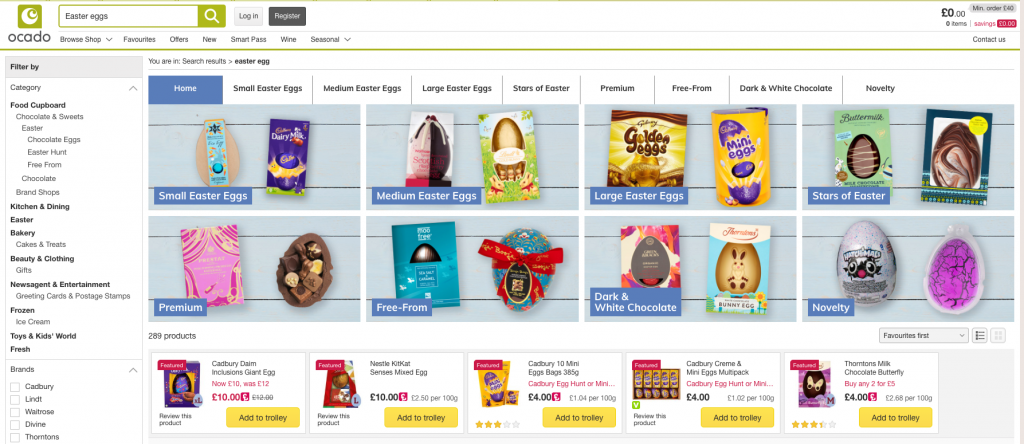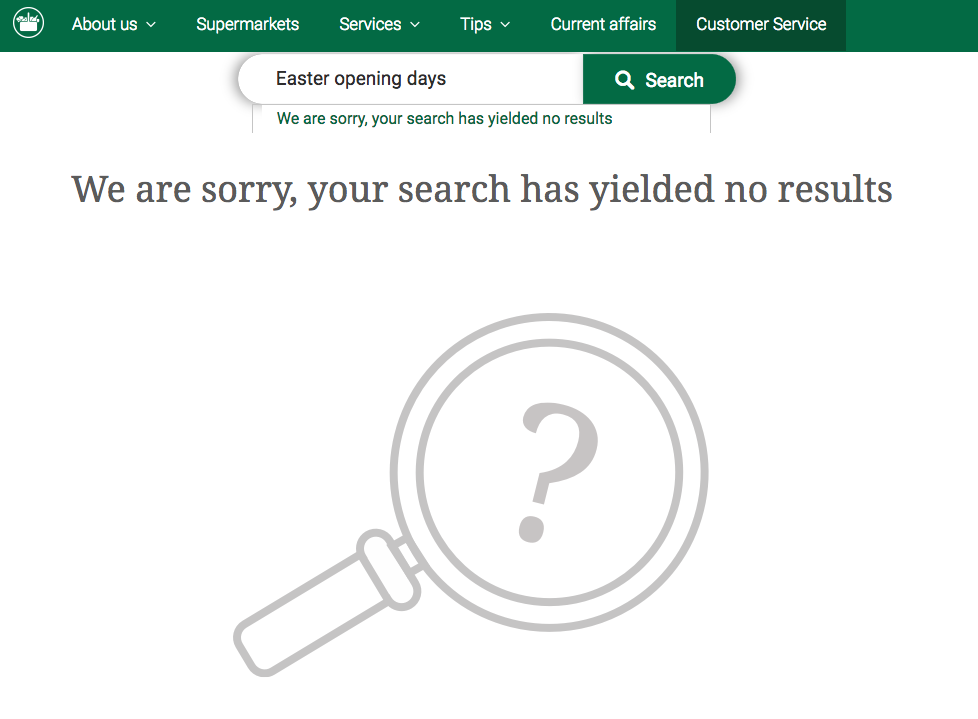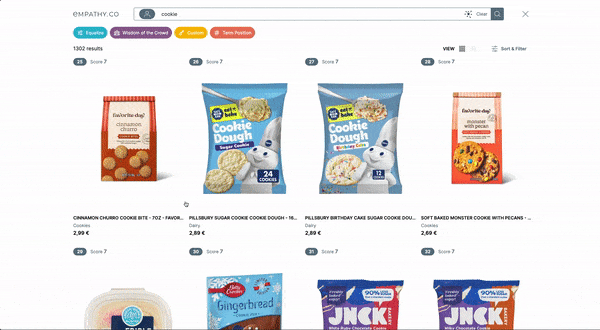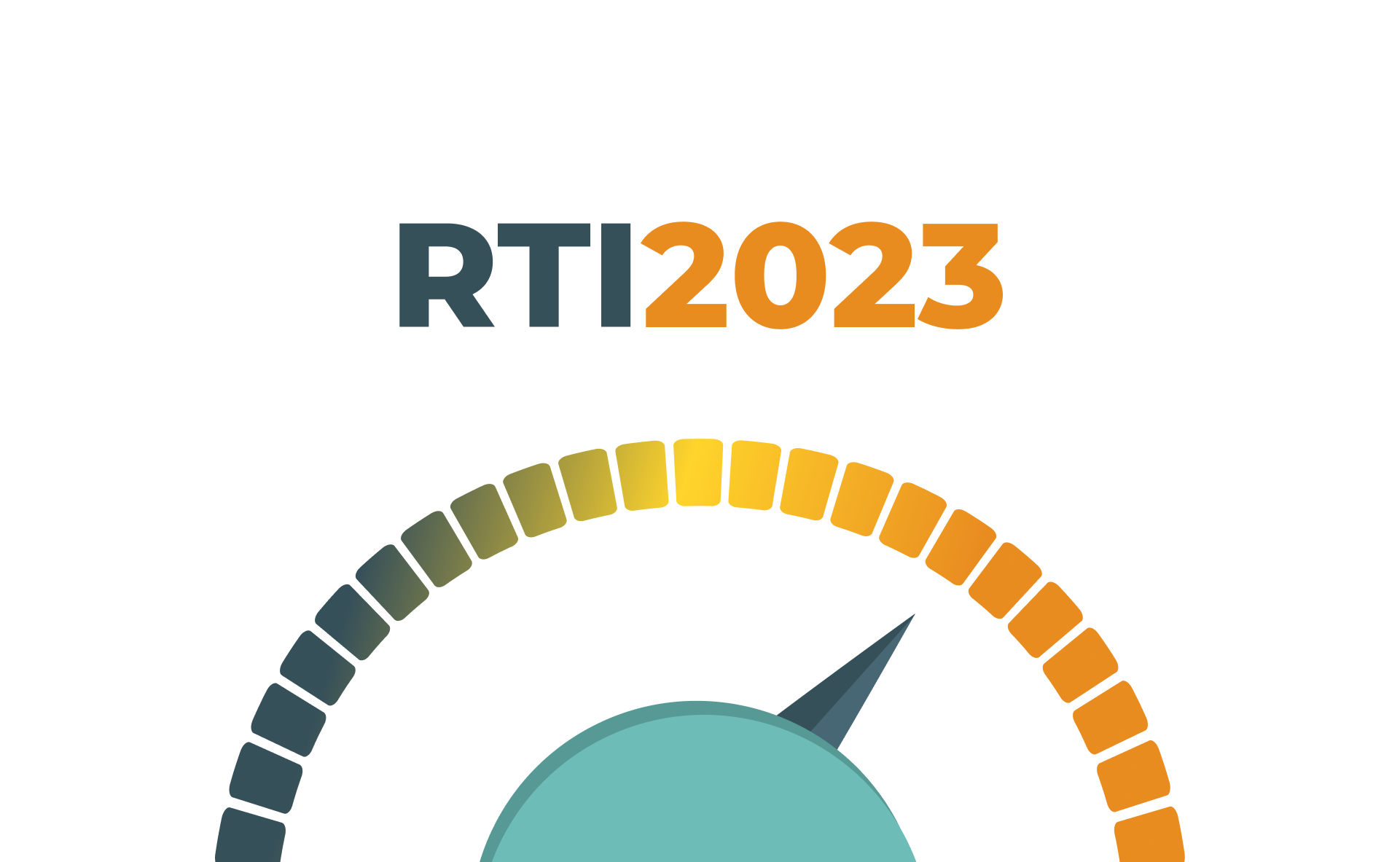Make sure this Easter is egg-stra special
Make sure this Easter is egg-stra special
April 16 2019
As we make the final preparations this week for the long Easter weekend, we thought we’d take a look at not only the impact of this period on eCommerce but also the different traditions and shopping habits it generates. Looking at not only the differences from one country to another but also the variances in customs and traditions regionally too.
Taking our two largest markets, the UK and Spain, we looked at the different search patterns and customer demand during this special period to see what people were looking for and buying. And, one thing was certainly clear, for some retailers, online traffic and search queries increase substantially to make it one of the busiest times of the year!
The UK gets especially egg-cited
Over the 2019 Easter period, consumers in the UK are predicted to spend an incredible £1.1 billion with the majority of that spend going towards chocolate, groceries and holidays.
Searches for Easter eggs are the trend setters and the biggest source of income for supermarkets and chocolate shops during Easter week marking the British tradition of giving each other Easter eggs made of chocolate, normally hollow and filled with sweets.
TV commercials and media communications fill the airwaves with the top sellers and brands like Cadbury’s Creme Eggs dominate, filling our ears with catchphrases like “How do you eat yours?” Britain’s children go on Easter egg hunts and count up how many eggs they’ve either found or been given, making it pretty clear that the Easter egg is still a must-have, especially when children are around.
Which egg you choose though depends on different factors, of course commercials play their part, but supermarkets and stores clamour for attention with aspects such as price, size, quantity, the kind of chocolate and who it’s for all coming into play.
That’s why it’s so important for supermarkets to create special, tailored Easter offerings with bespoke filters and categories to help shoppers easily find what they’re looking for, tailoring search results while also offering inspiration and surprises along the way. There’s a right Easter egg for each person, not a one size mini egg for all!

And it’s not just chocolate eggs. Easter is a time of eating in general, with consumers stocking up at grocery stores and supermarkets to prepare the Sunday roast or fill the cupboards and fridge in anticipation of the arrival of family and friends.
While others look to escape and take advantage of the double bank holiday weekend and school holidays to take a break. Whether that’s a long weekend trip to the countryside or something further afield, making this also a peak time for travel agents and holiday sites.
Spain keeps tradition at its heart
Yes, there’s lots of eating and drinking but there are also many Easter parades and festivities. Spanish purchases are more diverse during this period and while there are peaks in grocery shopping and holidays, there’s not such a frenzy to find the perfect chocolate egg. For the Spanish, it’s a time for family, trips and also for religion, after all Semana Santa translates as Holy Week and it’s the country’s biggest religious celebration of the year.
Yes, there’s lots eating and drinking but there are also many Easter parades and festivities. Of course, this varies from one region to another but Seville, for example, famously brings the Passion and Death of Christ to life along its streets.
While chocolate Easter eggs are becoming more and more popular, they are not traditionally a big part of Easter celebrations in Spain and are still a last-minute purchase rather than a must-have in most Spanish homes. But that’s not to say Spaniards don’t have special sweet treats for Holy Week. Torrijas, a sweet snack of bread soaked in milk and egg before being fried and served with sugar or honey, and Pestiños, little pastries, are popular throughout Spain, and especially in Andalusia.
By looking at the searched terms across the whole of Spain we saw that there aren’t any special patterns on Easter products, however, one query that did come up a lot was opening times! Many supermarkets, and retail shops, see an increase in users either navigating through their site or searching for their Easter opening hours as these are not standard hours and can vary per store.

Queries on Special Dates periods, when shoppers display specific characteristics and common attributes, can reveal important trends in consumer behaviour. Through understanding search behaviours around special dates like Easter, retailers can make sure they not only create more tailored shopping experiences, helping shoppers to easily find what they’re looking for but also prevent the dreaded No Results page, which can be completely different from standard dates.
It’s really important therefore for retailers to treat these dates differently and to anticipate and be prepared for special queries on special dates.
Analyse and Discover
Whatever your kind of business, and whichever country you’re in, there is one thing that’s certain: site search data is your ally. Looking at your Easter queries and main search KPIs will help you to clarify which actions to take.
Developing a better understanding of customer behaviours and demands through analysing search data, an incredibly valuable asset and one often overlooked, can help retailors not only optimise and tailor their online store but make more informed decisions.
This not only means that retailers can stand out from the competition in an often-overcrowded market place but importantly they can make their customers feel special and more connected to them as a brand.
Getting special dates like Easter right not only boosts sales and revenue during such important trading periods but also builds better relationships with customers, creating a brand that is more engaging and more relatable.
To learn more about tailoring and targeting digital experiences on special dates download our Special Dates Guide.










